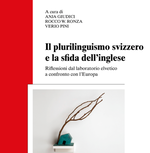Explaining Language Education Policy

Language education policy matters. In fact, there is only one way to master a language: learn it. Despite often being couched in biological terms – mother tongue, language families, descent words –, language actually has little to do with nature. Languages are manmade, and while biology may provide individuals with the ability to acquire and use language, when it comes to particular languages, “[t]here are no genes; there is only learning”, as sociolinguist Einar Haugen (1973) puts it. As the prime institution for the professional conveyance of knowledge from one generation to the next, formal schooling plays a crucial role in enabling and regulating language learning.
Everywhere, children enter schools with diverse sociolinguistic backgrounds. Therefore, decisions about the languages that are included in or excluded from school curricula have a major and differential impact how they experience schooling, as well as the degrees they will be able to acquire and the career paths they will be able to access. Since no society is monolingual, the choice of languages taught in formal schooling also carries implications on a societal level, affecting political entities’ overall economic success, and setting the premises for democratic deliberation.
In a series of studies, I have explored the patterns, development, as well as the determinants behind language education policy.
Publications
Teacher politics bottom-up: theorising the impact of micro-politics on policy generation
Il plurilinguismo svizzero e la sfida dell'inglese. Riflessioni dal laboratorio elvetico a confronto con l'Europa
In Italian.
The book analyse historical and current developments in Swiss language policy, discussing their implications for the …
Explaining Swiss Language Education Policy
No society is monolingual. Therefore, decisions about the languages that are included in or excluded from school curricula have a major …
National unity in cultural diversity: How national and linguistic identities affected Swiss language curricula (1914-1961)
Bildungspolitik als Sprachenpolitik
Chapter in German.
The chapter discusses the contrasting logics underlying language education politics in light of recent debates on …


